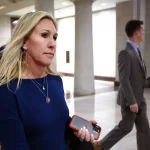Recently Breitbart published a video in which doctors touted the use of hydroxychloroquine as a treatment for COVID-19. It went viral. Shortly after, social media companies started to remove the video because of misinformation. I posted about this on Facebook and some responses I received were interesting, to say the least. It was much more than what I could answer in the comments section, so I decided to take the time to write some more thoughtful responses.
New Media
In the last decade, our means of receiving information has changed drastically. We no longer rely on printed materials for news. The digital age has largely done away with print media. In October 2019, Forbes, citing a Pew Research poll, that “55% of U.S. adults now get their news from social media either “often” or “sometimes((https://www.forbes.com/sites/petersuciu/2019/10/11/more-americans-are-getting-their-news-from-social-media/#6e36da6a3e17)).” Over 50% of US resident get their news feed through an intermediary. In fact there are multiple layers to these intermediaries.
There are higher-level intermediaries like Facebook, Youtube, Redditt, and Instagram among many others that have their terms and conditions. Then there are secondary intermediaries such as web hosting with their own set of terms and conditions. These are companies like Amazon Web Services, Google, and Microsoft.
All these companies have provisions in their terms of service that prohibit certain types of content and activities. This is problematic for two reasons. First, the applications we use for mass communication are largely owned by a handful of companies, Google, Facebook, Amazon, Microsoft, and Twitter. Second, news media is now required to be filtered through these terms and conditions which limits the freedom of the press and speech.
Censorship has happened very frequently. The Front Line Doctors video shows how real this filtering has become. If there is a differing view and these large tech companies don’t like them how does the information then get distributed?
Media outlets could host the information on their own site, but what happens if the hosting company doesn’t like the content and deems it dangerous? Could the hosting company then shut down the media outlets site?
We are seeing a new type of censorship nearly outside the rule of law. Tech Companies are showing their increased willingness to limit information to the public. This allows them to control a narrative. The recent incident where Facebook blocked a Trump ad for violating its terms and conditions is a perfect example of the narrative being controlled. I’m not suggesting Facebook is engaging in concerted effort to tilt the election but with their terms and conditions they are in fact controlling a narrative.
Cognition and Progress
Without getting into the merits of the Front Line Doctors video, there are those that believe the video is dangerous and should have been blocked. Their rationale is that it is inciting panic, just like yelling fire in a crowded theater. I reject his notion. In a crowded theater when someone yells fire there is an immediate action that has to be taken to save one’s own life. Where do I run for safety? How do I get to the doors?
This is not true of a video. When seeing the video there is no immediate threat to the person watching. There is also not an immediate threat to the public as a whole. People have the ability to think rationally through the video and make an informed decision.
The bigger question, however, is should we ban information we deem false? The short answer is no. Why would we? Our ability to progress as a species relies on sorting out bad information from good information. Epistemology can give us insight into how we should approach the idea of censorship
Epistemology is the study of the nature and scope of knowledge and justified belief. Epistemology asks questions like: “What is knowledge?”, “How is knowledge acquired?”, “What do people know?”, “What are the necessary and sufficient conditions of knowledge?”, “What is its structure, and what are its limits?”, “What makes justified beliefs justified?”…etc.
The famous argument at the British Association in 1860 between Thomas Huxley and the Bishop of Oxford, Samuel Wilberforce, over the origin of species is a classic example of the clash between beliefs about the foundations of knowledge. Wilberforce argued that Man was created by God; Huxley argued that Man evolved through natural selection. Bishop Wilberforce believed he was right because ‘true’ knowledge was determined through faith and interpretation of holy scripture; Professor Huxley believed he was right because ‘true’ knowledge was derived through empirical science and rational skepticism.
We could categorize the current situation in a similar abstract way. One could argue that knowledge is acquired through a filter of authority. This seems to be the position of social media companies. Only the people they deem qualified are allowed to spread information.The counter-argument is that we should allow all information and allow people to think and act for themselves. I advocate for the latter position.
We’ve seen the fallacy of the former argument throughout the ages. During the reign of Queen Elizabeth I, philosopher, mathematician, astrologer, and astronomer Giordano Bruno took refuge in England from the Italian Inquisition, where he published a number of his books regarding an infinite universe and topics banned by the Catholic Church. After leaving the safety of England, Bruno was eventually burned as a heretic in Rome for refusing to recant his ideas. For this reason, he is considered by some to be a martyr for free thought.
Another more recent example was a political campaign led by Trofim Lysenko against genetics and science-based agriculture in the mid-20th century, rejecting natural selection in favor of Lamarckism and exaggerated claims for the benefits of vernalization and grafting. Lysenko served as the director of the Soviet Union’s Lenin All-Union Academy of Agricultural Sciences.
In both cases, the authorities suppressed the information because they favored something different. These two cases are certainly not isolated events. History provides us with case after case of information suppression.
In the end, there are three questions that have to be answered. First, does suppression of information lead to increased prosperity? The answer to this question is no. History has shown us that. Second, if suppression of information is not the answer then how do we increase critical thinking within a population where there is so much information on daily basis. Third, what is the answer to the legal question of intermediaries and their role in free speech?
I don’t believe information is the problem. I believe the problem lies in not being able to critically evaluate the information. However, even without the ability to critically evaluate the information, there is not justification to censor said information. We have to be able to argue it out and let facts and reason prevail.





